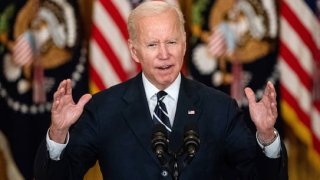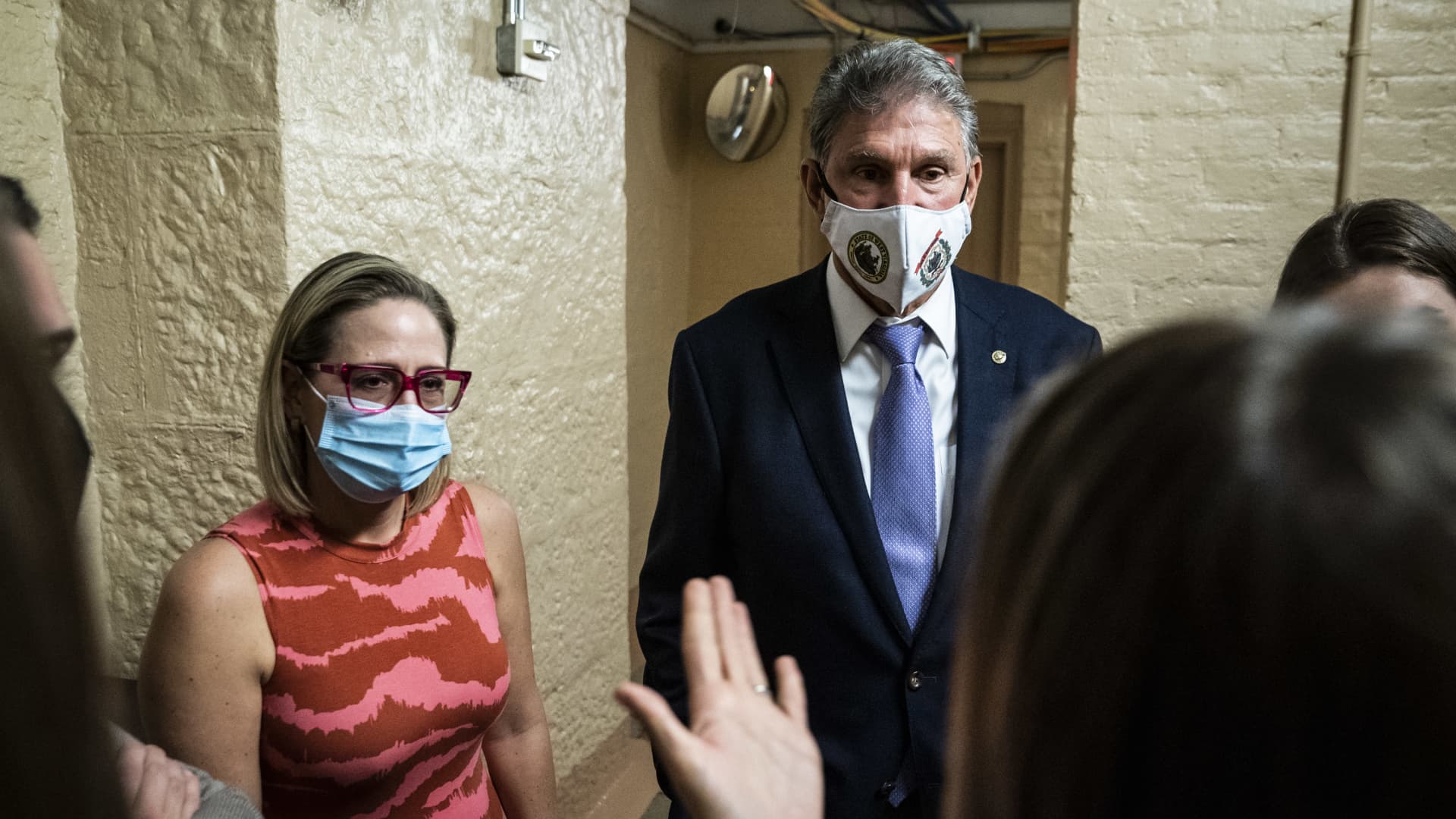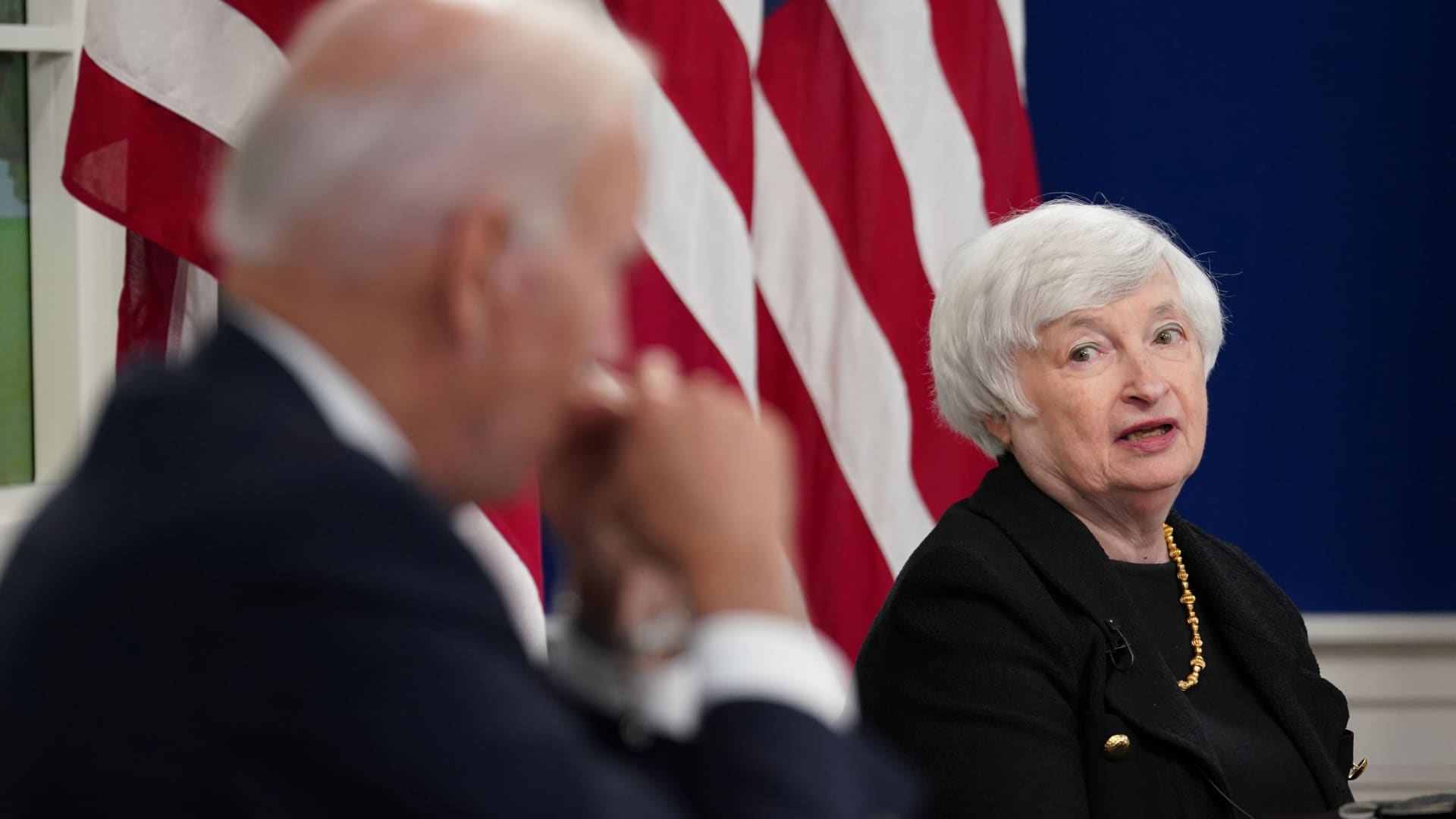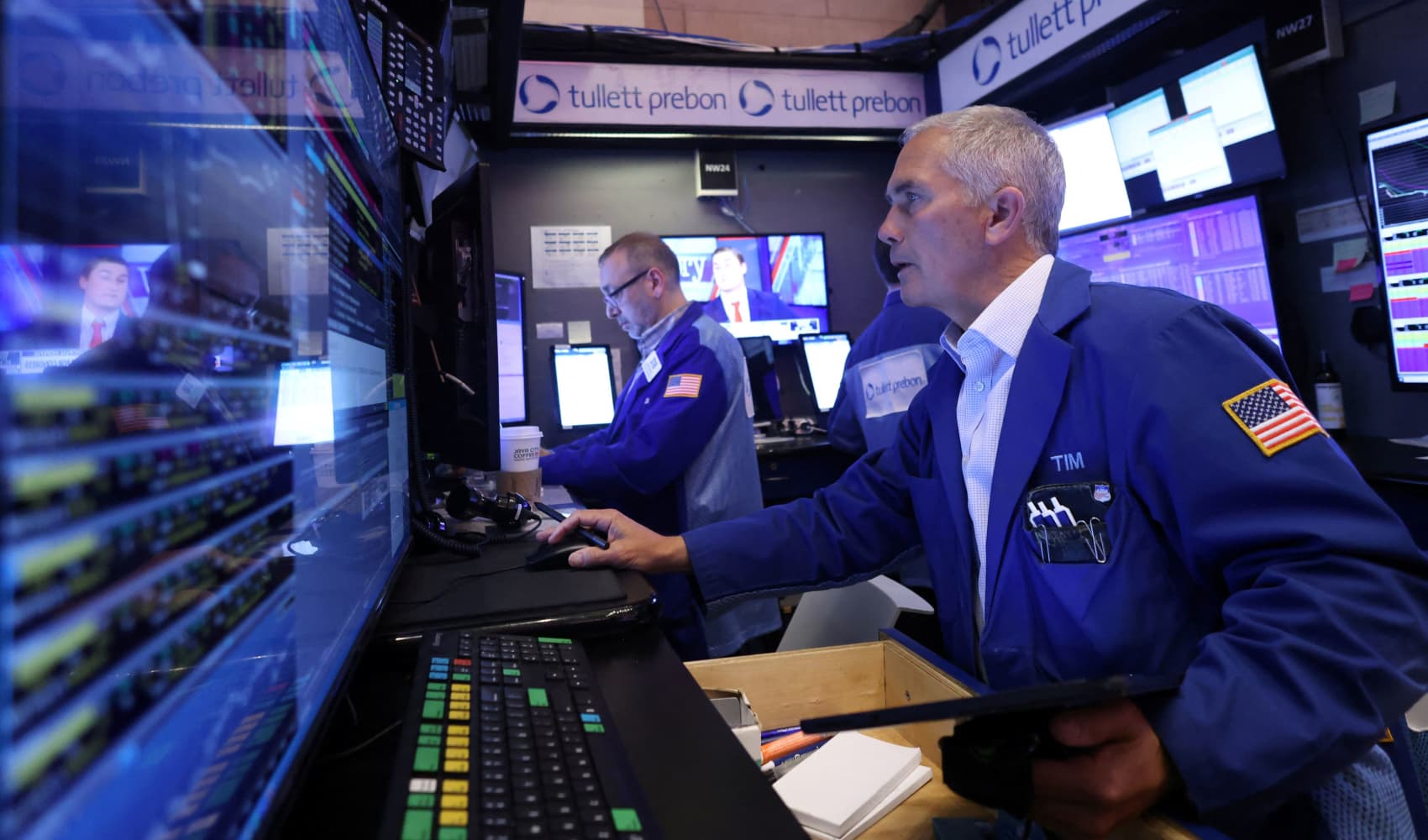
- President Joe Biden on Thursday unveiled a $1.75 trillion framework for his signature climate and social spending bill.
- The outline contains more details than anything else released thus far. But it still may not be enough to win over key congressional holdouts.
- Rep. Pramila Jayapal, chair of the Congressional Progressive Caucus, said later Thursday that her caucus will not vote for the infrastructure bill until both pieces of legislation are finalized and ready to pass.
WASHINGTON – President Joe Biden announced Thursday that he had reached a deal with Senate Democratic holdouts on the outlines of a $1.75 trillion social spending and climate bill.
The product of months of tense negotiations between moderate and progressive lawmakers in his party, the new framework contains more details than anything else the White House has released thus far.
Get a weekly recap of the latest San Francisco Bay Area housing news. Sign up for NBC Bay Area’s Housing Deconstructed newsletter.
But it still may not be enough to win over key congressional holdouts. "I know we have an historic economic framework," Biden said in remarks at the White House. But he added, "I'll have more to say after I return from the critical meetings in Europe this week."
Senior administration officials said early Thursday morning that Biden was "confident this framework will win the vote of every Democratic senator."
But that confidence was shaken when none of the three senators in whose hands the fate of the plan lies -- progressive standard bearer Bernie Sanders of Vermont and centrists Joe Manchin, W.Va. and Kyrsten Sinema, Ariz. -- publicly committed to voting for the current framework.
Money Report
On the contrary, they all appeared to view the framework as an evolving proposal, not a final, ironclad deal.
The current framework is far smaller than Biden's original $3.5 trillion proposal. The House Rules Committee released a draft of the reconciliation text Thursday afternoon.
Still, the package contains a wide-ranging set of programs that, if enacted, will profoundly impact the lives of families with children, low-income Americans and the renewable energy economy.
They include:
- Universal preschool for all 3- and 4-year olds, which is funded for at least 6 years.
- Subsidized child care that caps what parents pay at 7% of their income, which is funded for 6 years.
- A one-year extension of the current expanded Child Tax Credit, which impacts approximately 35 million households nationwide.
- Expanded tax credits for 10 years for utility and residential clean energy, including electric vehicles.
- Extend the current, pandemic-related Affordable Care Act subsidies for 4 years.
- Allow Medicare to cover the cost of hearing.
The White House says the total cost of the programs will come to $1.75 trillion. There is also an additional $100 billion earmarked to reduce immigration backlogs and speed up asylum processing. But that money would require approval by the Senate's nonpartisan rule maker, known as the Senate Parliamentarian, who has twice rejected attempts by Democrats to include immigration language in what is technically a budget bill.
Progressives so far have refused to back the bill, which funds highways, bridges, utilities and ports. They have demanded that Democratic leaders first release firm legislative language for the companion social spending bill.
The caucus said later Thursday that they would not vote for the infrastructure bill until both bills are ready to clear Congress with finalized text.
"There is too much at stake for working families and our communities to settle for something that can be later misunderstood, amended, or abandoned altogether," Rep. Pramila Jayapal, chair of the Congressional Progressive Caucus, said in a press release Thursday afternoon.
"Members of our Caucus will not vote for the infrastructure bill without the Build Back Better Act," the Washington Democrat added. "We will work immediately to finalize and pass both pieces of legislation through the House together."
Also notable is what the framework does not contain. A longstanding proposal to create a federal paid family and medical leave system was dropped from the bill on Wednesday afternoon after Manchin, a key Democratic swing vote, said he did not believe the program belonged in the bill.
Cuts like these infuriated House and Senate progressives, and Sanders told reporters Thursday "it needs to be improved."
"What we have to do now is, first of all, make sure that before the [infrastructure bill] vote takes place in the House, to make sure that there is a very explicit legislative language" on the social spending plan, he said.

Manchin would not explicitly support the framework, either. "It's hands of the House," he told reporters outside his Capitol Hill office. "I've been dealing in good faith. I will continue to deal in good faith."
In a statement, Sinema said the months of negotiations had resulted in "significant progress" on the budget bill. "I look forward to getting this done," she added.
Biden traveled to Capitol Hill on Thursday morning to attend a meeting of the House Democratic caucus. There, he explained what was in the social and climate framework and he appealed to House progressives to vote for the framework's companion bill, a stalled $1 trillion infrastructure bill that has already passed the Senate.
Paying for it
The plan, if passed, will impose a 15% minimum tax on corporate profits by large corporations, adopt the 15% minimum global tax brokered by Treasury Secretary Janet Yellen, and apply a 5% surtax rate on individual income above $10 million.

That rate would rise another 3% on income above $25 million. The Democrats' plan also includes a 1% surcharge on corporate stock buybacks, which the Biden administration believes "corporate executives too often use to enrich themselves rather than investing workers and growing their businesses."
The Biden administration plans to beef up the IRS with a cash infusion to help the tax collector hire more auditors, update technology and expand its enforcement division.
Thanks to years of budget cuts, audit rates on those making over $1 million per year have fallen by more than 60% over the last decade, the White House said.
One proposal that was dropped from the bill on Wednesday would have compelled banks to report cash-flow information to the IRS for accounts with more than $10,000 in non-wage deposits.
Democratic Rep. Richard Neal, chairman of the powerful House Ways and Means Committee, said Wednesday that it was being "reworked" to apply only to people who earn more than $400,000 a year.
But based on the White House framework Thursday morning, it did not make it into the final bill.
This is a developing story, please check back for updates.






